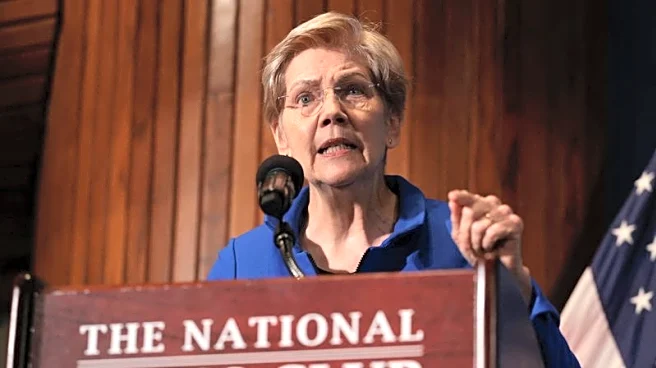What's Happening?
The future of enhanced premium subsidies under the Affordable Care Act (ACA) is uncertain as Congress debates funding for the federal government. These subsidies, which have made healthcare coverage more
affordable for many Americans, are set to expire at the end of the year unless Congress acts to extend them. The potential expiration of these subsidies has become a central issue in the ongoing budget discussions on Capitol Hill, which have already led to a government shutdown. As open enrollment for 2026 ACA coverage begins on November 1, enrollees are facing the prospect of significantly higher premiums if the subsidies are not renewed.
Why It's Important?
The expiration of enhanced ACA subsidies could have widespread implications for millions of Americans who rely on them to afford healthcare coverage. Without these subsidies, many enrollees may face financial strain due to increased insurance premiums, potentially leading to a rise in the uninsured rate. This situation underscores the broader political and economic stakes involved in the federal budget negotiations, as healthcare affordability remains a critical issue for many U.S. households. The outcome of this debate could influence public opinion and voter behavior, particularly as healthcare costs continue to be a major concern for the electorate.
What's Next?
As the government shutdown continues, pressure is mounting on Congress to reach a resolution that includes the extension of ACA subsidies. Stakeholders, including healthcare advocates and enrollees, are likely to increase their lobbying efforts to ensure that these subsidies are maintained. The outcome of these negotiations will be closely watched, as it will determine the affordability of healthcare for millions of Americans in the coming year. Additionally, the political ramifications of the decision could impact upcoming elections, as healthcare remains a pivotal issue for voters.











